Festivals - Son of the South : Let’s talk with the director Barry Alexander
By Mulder, Deauville, 18 september 2021
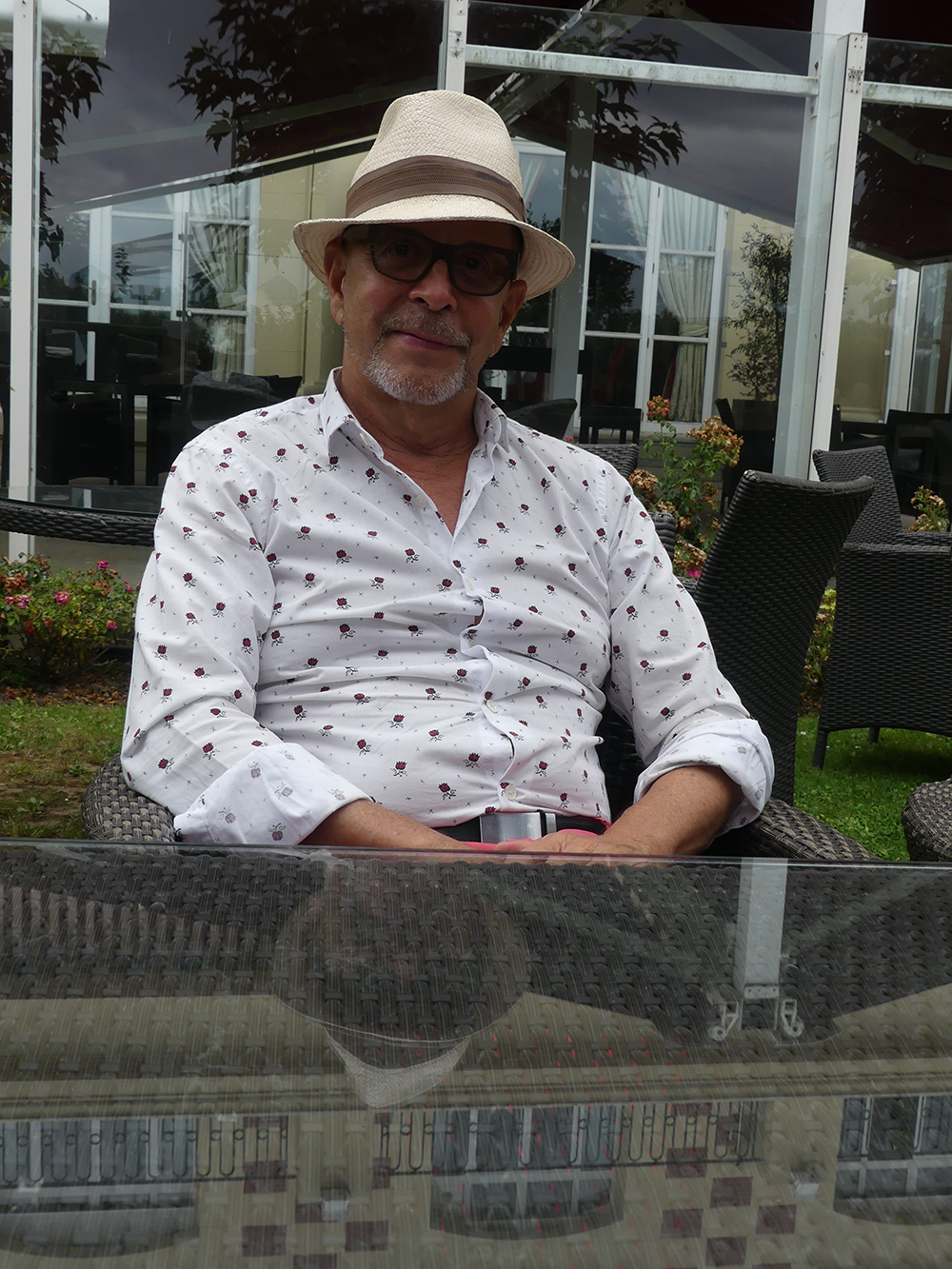
Son of the South is a 2020 American biographical historical drama film, written and directed by Barry Alexander Brown. Based on Bob Zellner's autobiography, The Wrong Side of Murder Creek: A White Southerner in the Freedom Movement, it stars Lucas Till, Lex Scott Davis, Lucy Hale, Jake Abel, Shamier Anderson, Julia Ormond, Cedric the Entertainer and Brian Dennehy in his final film role. Spike Lee serves as an executive producer. It had its world premiere at the American Black Film Festival on August 26, 2020. It was released on February 5, 2021, by Clear Horizon Entertainment and Vertical Entertainment.
During the Deauville American film festival, we had the opportunity to interview the director Barry Alexander.
Q : hello Barry Alexander after edited music videos for Michael Jackson, Prince, Stevie Wonder, Public Enemy and Arrested Development, directed some shorts and documentary movies as sidewalk. Son of the south is your new movie that you have written and directed. This film is Based on Bob Zellner's autobiography, The Wrong Side of Murder Creek: A White Southerner in the Freedom Movement, how have you known and adapted this one ?
Barry Alexander : I've known Bob Zellner for a long time, for about 36, 37 years okay so and when he was writing his book i was writing the script because i had already heard all those stories and i knew the stories and i knew them inside and out it was weird and you know so you know there was times where i read parts of the book i read the book and there was things in there that i thought well i didn't know about that but otherwise there were things that probably didn't even end up in the book that i knew about.
Q : In a few words, can you talk to about the story of your this film ?
Barry Alexander : Sure, the film is about a young guy. 1961 starts in the spring of that year when this man Bob Zellner was about to graduate from college in Montgomery Alabama and a series of things happens to him in which the white power structure just comes down on him because he's doing almost nothing he starts off with visiting a black church to interview Rosa Parks and the reverend Ralph Abernathy about a paper he's been assigned to do at school about race relations and the school has told him. well you can't talk to black people about this about this and he thinks well that's ridiculous i mean how can i not talk to one of the races so he goes anyways and then the world comes down you know and they want to throw him out and then after that and then that leads him into more discovery about what's going on with the civil rights movement and he comes to a series of crossroads and at each crossroads he's got to look at himself and say what kind of person am i where do i stand on this what am i going to do about am i going to do nothing am i going to walk away can i walk away and what should i do.
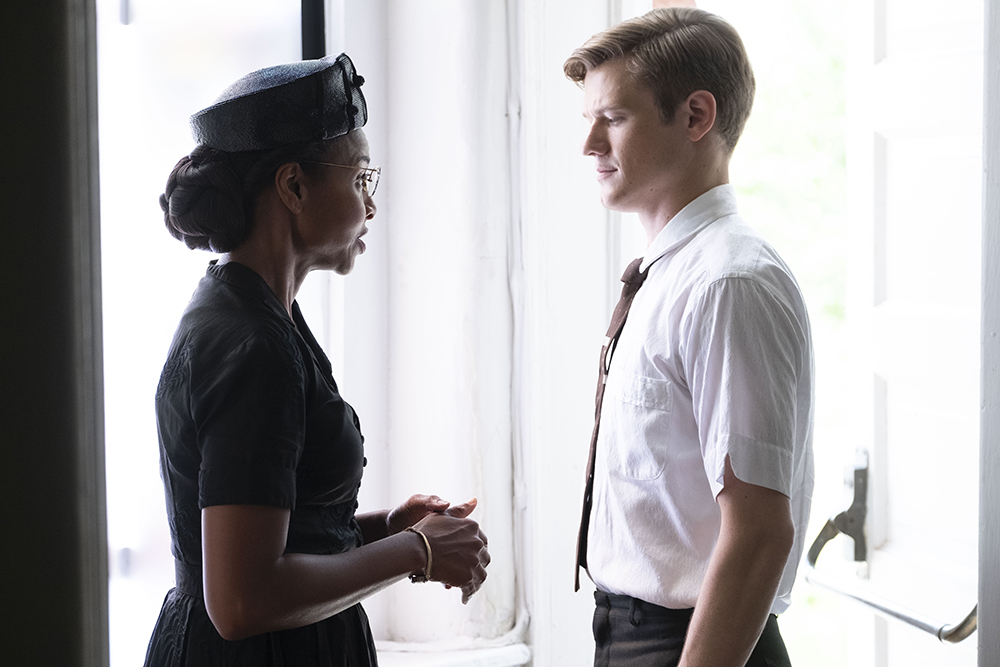
Q : What should be for you a good acting direction? What can you tell us about you work with Lucas Till, Lucy hall, Julia Ormond , Lex Scott Davies and Brian Dennehy and Cedric the entertainer ?
Barry Alexander : Well these are all great actors you're talking about you know and one thing that you do and this was my friend Spike Lee's advice to me is cast great actors cast great actors and you know talk to them about these parts but then let them develop it let them develop these roles and these performances and let them go you know Julia Ormond a great legendary actress and she's English and she wanted to play she wanted to play Virginia Durr and she had this amazing accent. This incredible southern accent really from the turn of the last century and it was a very tough accent very sing-song is beautiful she talked like my grandmother they're both from that part of Alabama but Julia wanted to do it and i thought brother i don't know and yet we got her a voice coach to work with her on that accident and Julia found that accent and delivered it and believe me i've shown this film in Alabama you know where a lot of people down south think that most films shot in the deep south shot about the deep south his accents are just awful you know and people no man nobody has a problem with Julia Ormond's accent and it's a tough and so you're working with people that are so talented and so brilliant and so hard-working and losing hail lucy just a joy to work with and so smart and man she nailed this girl carol and she i mean and you know and i saw lucy do this one day where she plugged the line i can't remember what the line was you know as Carol and she flubbed this tape and she fell out of character. You know as lucy and goes what did he just say and she went right back into here and she was right back there and just to work with people as talented as that you sometimes you're trying not to get in their way really
Q : What can you tell us of your collaboration with spike Lee on this film ?
Barry Alexander : Well you know Spike Lee read the script a few times he gave me notes on the script as executive producer and then once the film was shot you know he saw he saw cuts in the movie and he would respond to cuts and sometimes i would call him for advice you know and just one of the advice was about casting and one time in one of his conversations you know he simply said to me hey that's the best time which processes have you done in order to create this movie some books maybe some documentaries on tv. i would say that in terms of processed thinking from other things you know I’ve got to say that probably the biggest influence like that would probably be southern novels which would have had a bigger impact on me in terms of son of the south because there's a lot of great southern authors and so you see what you look at what they've that what they did and you see the cadence of their work you see how they develop characters and you draw from that
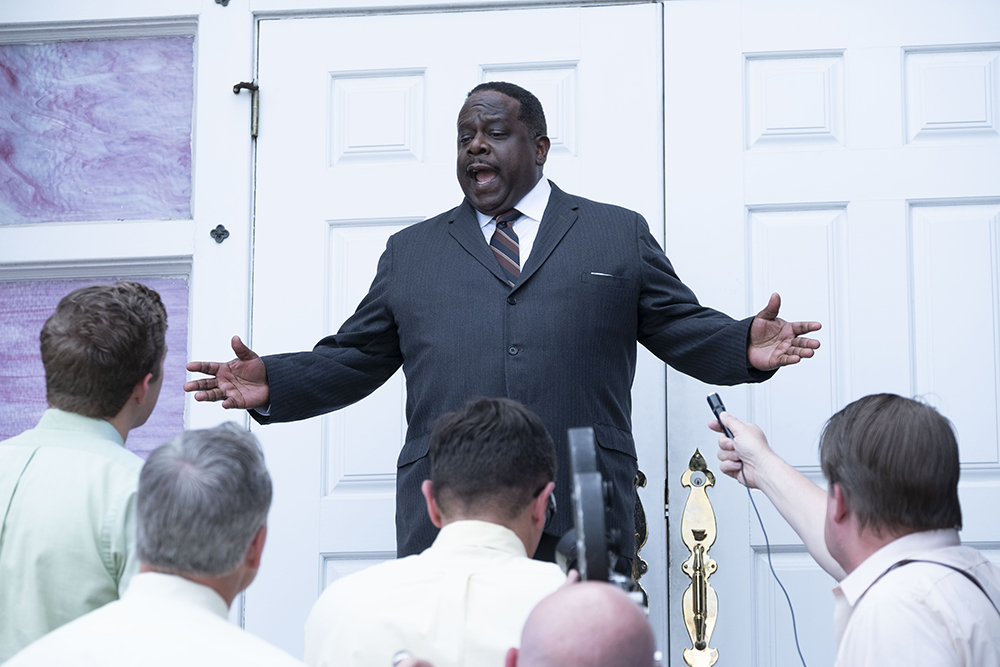
Q : What can you tell us about your filming locations ?
Barry Alexander : well you know i really wanted to shoot the movie in Montgomery Alabama because that's where a lot of the story takes place yes it's also where I’m from so i know Montgomery really well . My family's still there my mother's 96 years old and still there and still in great shape and i want it as much as possible to shoot in the real places that these things happen so that riot for the uh freedom riders when the freedom riders come that's the real greyhound bus station that they came to that's exactly where the riot happened you know that moment where very early in the story where Bob goes to this church where the police he has the black church and the police have surround the church to arrest them because they're white boys going to a black church that's the real church the first Baptist church the brick a day church that's the real church and I don't know exactly with which pew they really sat in in that church but the way that bob described it it was towards the back so that's where we did it and that door went in the movie where rosa parks stops bob and says something bad is going to happen right in front of you someday and you're going to have to choose which side you're on not choosing as a choice that's exactly the doorway with the real Rosa Parks stop the real Bob's owner and deliver that line i mean that's a powerful message coming from a living legend and in 1961 Rosie Parker was already a living legend yes of course
Q : What was the most difficult scene for you to shoot and why ?
Barry Alexander : well the most difficult thing was really the riot for the freedom riders yeah and the reason why it was so difficult was because we had very little time to shoot. The film isn't doesn't it isn't this film with 30 or 40 million dollars we didn't have that kind of budget we so we didn't have that kind of time we really only had a day and a half to shoot that seam and we only had about 75 extras so wherever i put the camera every single extra was in front of that camera. Every single one of them and sometimes i'd have to you know they would you know they'd come running past through the scene you know we say go back go back so they and so it just feels like hundreds of people there's like hundreds of people and what we did was we choreographed the scene and then over weekends before we shot it we would rehearse and we were rehearsed with the camera crew we rehearsed with the actors we'd rehearse with the stunt people so we all knew on that day a shooting this is where we're going to move.
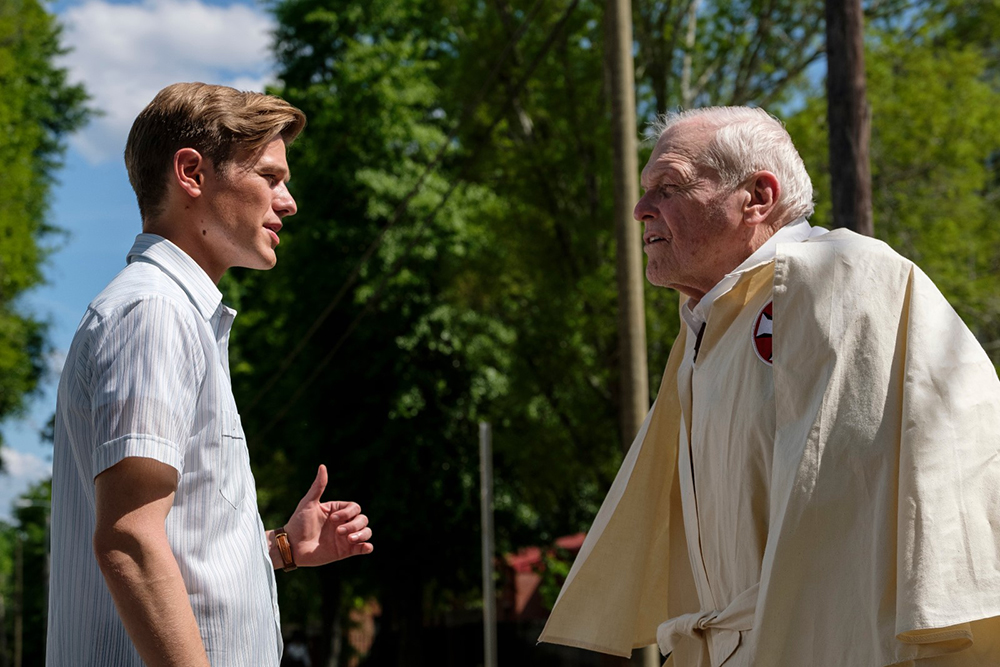
Q : How your experience as a film editor helped you as a screenwriter and director ?
Barry Alexander : well you know as a writer my career as a editor has helped a great deal because you know doing all these wonderful films with Spike Lee you get to where you really understand okay this is what i've seen really begins and this is where it ends sometimes you know you write a scene and you're right before it actually begins and you go way beyond after it ends yes and you discover in the editing room. Wait a second this is really the beginning of the scene that isn't really the end of the scene let's get rid of this or sometimes it's this middle stuff where you think okay i mean it's kind of like we've taken a detour here and now we're going to come back to the scene right and so i think that my years decades of being a film editor and being a film editor with great directors like spike lee and Mira Nair has taught me if that feels like a detour it probably is a detour let's stay let's stay on track here let's stay on track and every once in a while you really do want to get off track and just let something happen like that moment where bob takes the turtle off the road i mean you know it doesn't help us move the story forward but it tells us something about him.
Q : Can you talk a little about how important is this film in the particular context in America ?
Barry Alexander : well I think that the film is an inspiring movie yes it's an inspiring movie to get involved yes to do something you feel something get involved and i don't think it's just America. i think it's audiences everywhere because these are universal issues yes you know man's inhumanity to man is nothing that America has the market cornered on you know this is a worldwide problem yes and this is you know my film is a particularly American story but by the story that people can take from you know wherever they are and you know what we have over this last year is black lives matter movement in America and you certainly see parallels between what was happening 60 years ago and what was happening today son of joseph was very well resolved yesterday.
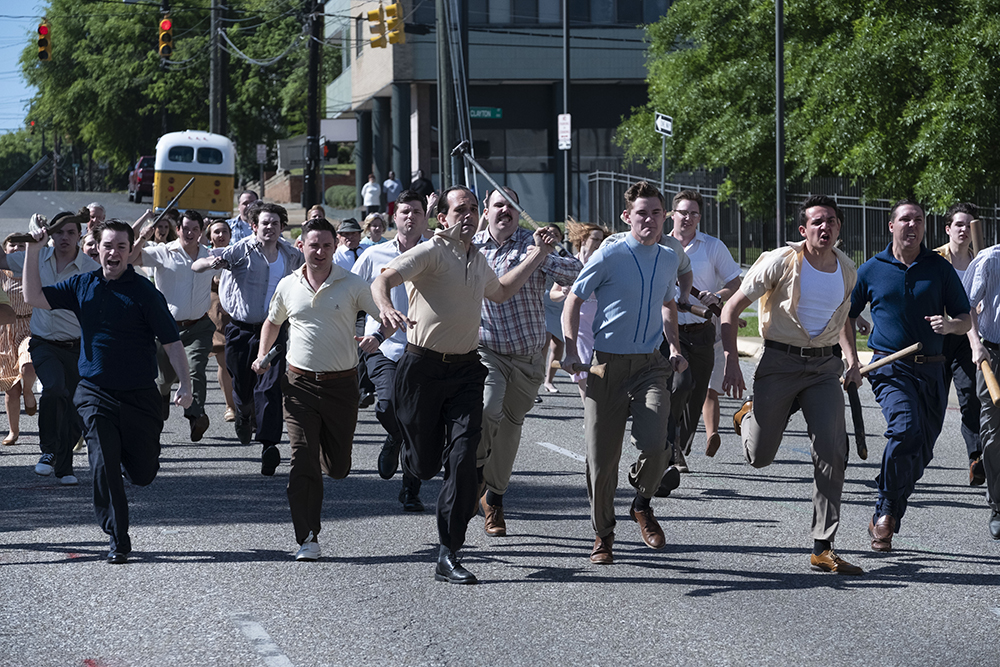
Q : Son of the South was very well received yesterday at the American Film Festival in Deauville. Did you expect such a good reception in France ?
Barry Alexander : i thought that the response in France would be good i was hoping it would be good it was i was hoping that the response in France would be good now did i expect as great a response yes you can't expect that you can't expect it you shouldn't even think about it and when it happens it's a gift you know and you really think wow you know We've done something special and something that that speaks to people and that all that whole audience is taking this movie away with them and it's going to live for them even when they're far away from it.
Q : Have you some advice to give some young editors ?
Barry Alexander : my advice to young editors is one of your biggest jobs is delivering a vision the director's vision most of the edits are going to be yours even a director who forces you to cut and recut and recut no matter what most of those edits are going to be yours and don't hang so tightly onto something be open you know it's not the very first cut where you find a movie yes it's in the re-editing of that movie where you really find it
Q : Which are your currents projects ?
Barry Alexander : well I’m working on a film called The provider. It takes place in Malta. We're looking at trying to do an all-European cast and it's a dark fantasy very different from the Son of the South.
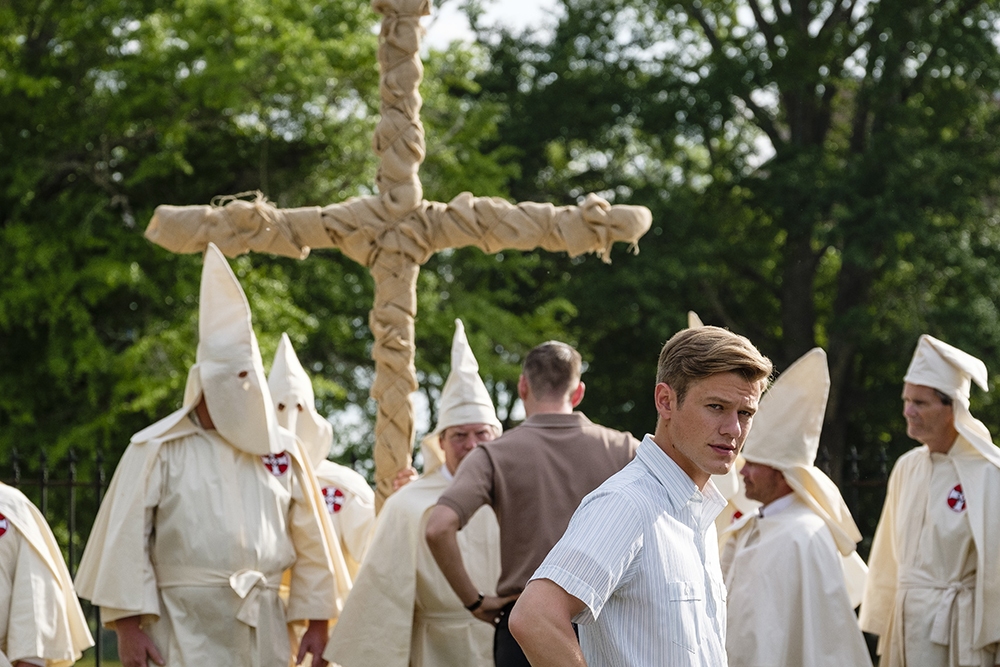
Synopsis :
Montgomery, Alabama. A grandson of a Ku Klux Klan member, influenced by the thinking of the Reverend Martin Luther King Jr. and Rosa Parks, became involved in the fight for civil rights in the United States in 1961.
Son of the South
Written and directed by Barry Alexander Brown
Produced by Colin Bates, Bill Black, Eve Pomerance & Spike Lee
From the Bob Zellner's book The Wrong Side of Murder Creek
Starring Lucas Till, Lucy Hale, Lex Scott Davis, Julia Ormond, Brian
Dennehy, Cedric the Entertainer, Sharonne Lanier, Chaka Forman, Ludi Lin
Music by Steven Argila
Cinematography : John Rosario
Edited by Barry Alexander Brown
Production companies : Lucidity Entertainment, Major Motion Pictures, River
Bend Pictures, El Ride Productions, SSS Film Capital
Distributed by Star Invest Films France (France), Vertical Entertainment (United States)
Release date : August 26, 2020 (ABFF), February 5, 2021 (United States), March 16, 2022 (France)
Running time : 106 minutes
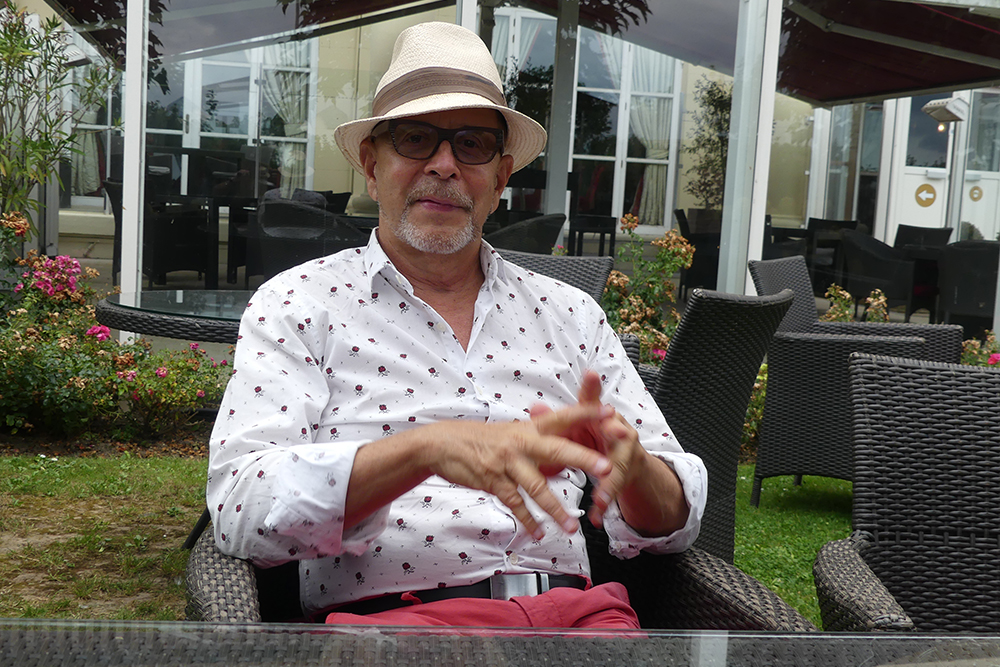
Photos and Video : Boris Colletier / Mulderville

